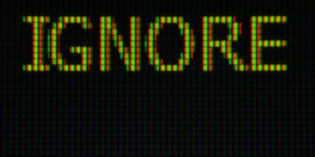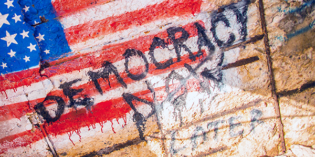Democratic threats

What hope is there for societies undergoing democratic downgrades?
Since the 2008 financial crisis, European democracies have lurched decisively in a damaging direction. Democratic citizens have found themselves with less and less of a say in how their societies are being run, all while more and more severe measures have been enacted in their name, writes Benjamin Abrams.

Why it’s bad for democracy when we ignore the voices we would rather not hear
Democracy requires that citizens be empowered to speak their minds across a wide range of issues. But in order to ensure democratic equality, do we have to include and listen even to those hateful, racist, or misogynistic voices that would seek to undermine democracy? Mary F. (Molly) Scudder argues that it is only with reference to the concept of ‘uptake’ that we can effectively deal with anti-democratic speech and arguments. She argues that if we first consider and critically engage with what others have to say, we are then justified in rejecting their input and even shutting them down. Focusing on the importance of uptake in democratic deliberation, she argues,can sound the alarm – alerting people to threats to democracy – while also helping to ensure that the voices of the marginalised and oppressed are not dismissed or ignored.

The populists’ trap: mainstream responses to populist new parties are a threat to democracy
New populist and nativist parties have emerged in many western democracies as a response to large-scale economic transformations, argues Stephane Wolton. The reaction by established parties in trying to imitate their anti-immigrant policies have dangerous consequences for our democratic norms.






 Democratic Audit's core funding is provided by the Joseph Rowntree Charitable Trust. Additional funding is provided by the London School of Economics.
Democratic Audit's core funding is provided by the Joseph Rowntree Charitable Trust. Additional funding is provided by the London School of Economics.